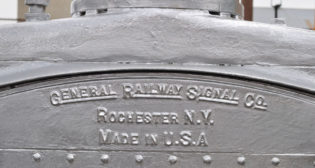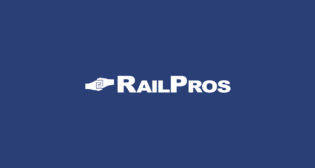
Hop on your TriMet train with Hop Fastpass
Written by William C. Vantuono, Editor-in-ChiefPassengers on six transit services in the Portland-Vancouver Metropolitan Area on July 17 began using Hop Fastpass™, a regional open-payments electronic fare collection (e-fare ) system implemented by INIT Innovations in Transportation, Inc., Chesapeake, Va.
Hop Fastpass, which spans multiple agencies, allows transit riders to pay for trips on TriMet and C-TRAN buses, Portland Streetcar, MAX Light Rail, WES Commuter Rail or the C-TRAN Vine BRT system. It is a fully integrated that can accept regular contactless fare media (Hop cards), credit or debit card payments. INIT describes Hop Fastpass as “one of the first public transit e-fare systems in the world to offer equity to passengers in the form of monthly fare capping. Riders have the benefit of earning daily and monthly passes, one ride at a time, without worrying about being charged more than the price of a daily or monthly ticket.”
Hop Fastpass benefits the transit providers “by reducing boarding times at stops and increasing efficiency and on-time performance, while simplifying fare collections and reducing cash in the system,” INIT says. “The open payments structure will benefit residents and visitors alike by providing an easy and worry-free way to enjoy getting around the Portland-Vancouver Metropolitan Area.”
Hop Fastpass works on more than 700 rail vehicles and buses, and at approximately 400 platform validators. Using the Hop website, Hop app, customer hotline, or an expanding retail network, riders can manage their accounts and funds 24/7. INIT’s back-end processing software, MOBILEvario, serves as the core intelligence for the Hop Fastpass system. It manages and processes multi-agency fare structures in real-time, recognizes and processes revenue sharing, and manages accounts and automates reconciliations. Hop Fastpass was “seamlessly integrated with several third parties—both competitors and partners—using an open API (open programming interface)* architecture approach, to deliver the project both on time and on budget,” INIT says.
Two of the agencies, TriMet and C-TRAN, already have INIT’s operations control and real-time passenger information systems deployed. “Due to the ease of INIT’s modular systems, the INIT e-fare module was much easier and more cost effective to set up,” the company says. “This factor significantly contributed to the overall success of the project.”
“The benefits of the Hop system will be far reaching, providing benefits not just for our riders but for the efficiency of our revenue operations as well as those of our fellow transit providers in the greater Portland-Vancouver metro area,” said TriMet General Manager Neil McFarlane. “Our 15-year partnership with INIT has been and continues to be one that fosters growth, technical advancement and effective process management.”
* An open API, also known as a public API, allows the owner of a network-accessible service to give universal access to consumers of that service, such as developers. Open APIs are published on the Internet and shared freely. A startup software company, for example, might publish a series of APIs to encourage third-party developers in vertical industries to determine new ways to use the startup’s software product.



